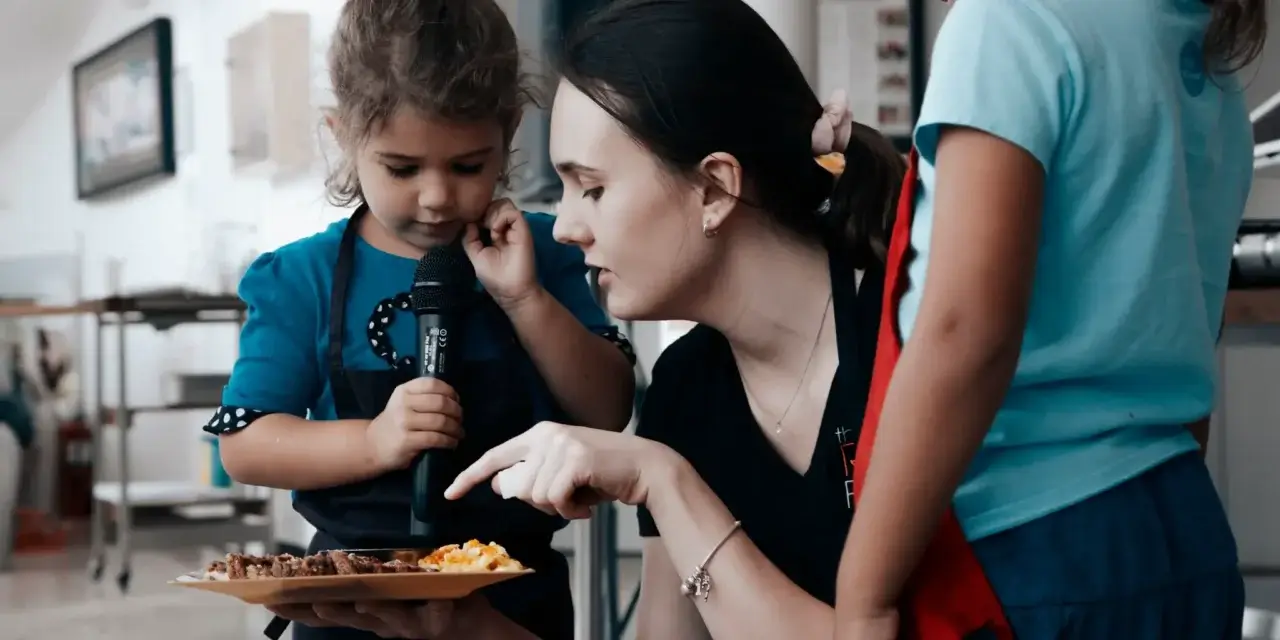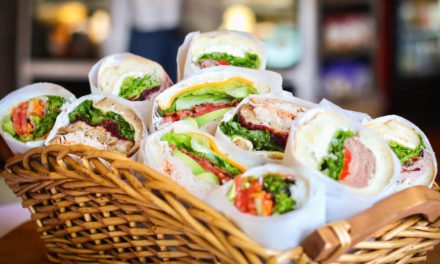The kid’s cooking classes franchise industry has experienced significant growth in recent years, driven by the rising interest in culinary education for children. At the Real Food Academy, our junior chef and adult cooking classes in Miami are about good times, great tastes, and healthy eating habits. Founded in 2008 by Head Chef Maria Cummins, the academy’s mission isn’t just to teach kids how to cook delicious meals and what to cook with. These are the words we cook by at The Real Food Academy culinary school in Miami, Florida: “We don’t change the dish; we change the ingredients!” This allows our little chefs to cook what they enjoy while using healthy, all-natural substitutes that are better for them and that taste better, too!
Let’s explore the advantages and opportunities, the challenges and disadvantages, the costs, and the future trends in the kid’s cooking class franchise world.
Advantages and Opportunities
Capturing a Growing Market: With increasing interest in cooking among children and parents alike, kids’ cooking class franchises tap into a growing market segment. With rising concerns about childhood obesity and unhealthy eating habits, cooking classes promote a hands-on approach to understanding and appreciating nutritious food.
Education and Skill Development: Kids cooking classes offer culinary proteges an engaging and hands-on approach to teaching valuable cooking skills, nutritional knowledge, and healthy eating habits.
Flexible Business Models: Kids’ cooking class franchises can choose from various business models, such as in-person classes, mobile kitchens, corporate events, or online training platforms, depending on their target market and available resources.
Brand and Marketing Support: Franchisees benefit from established brands’ marketing materials, helping to attract customers and generate awareness in their local communities.
Potential for Additional Revenue Streams: Kids cooking class franchises can explore additional revenue streams through adult classes, birthday parties, summer camps, specialty workshops, or merchandise sales.
Skill Development: Cooking classes for kids not only can teach children culinary skills but also enhance their other life skills, such as patience, creativity, mathematics, and science.
Niche Market: As parents seek extracurricular activities that are both educational and fun, kid’s cooking class franchises present a fun and unique offering different from traditional sports or art classes.
Community Engagement: Cooking classes often become family events that create a sense of community among children, adults, parents, and instructors.
Recurring Revenue: Once a child enrolls and enjoys the experience, there’s potential for them to continue all the fun by attending future classes or more advanced classes. They also help to bring in new students.
Kids Culinary Products: From child-friendly utensils to kid-centric cookbooks, this industry can collaborate with cooking classes and recreation centers for product placements, special events, and brand partnerships.
Team-building: Much like a team sport, kid’s cooking class promote cooperation, collaboration, and communication among children. The classes encourage teamwork with shared tasks and a common goal while accomplishing camaraderie.

Challenges
Compliance with Regulations: Franchisees must ensure compliance with local health and safety regulations, including food handling practices, licenses, and permits.
Maintaining High Standards: Consistency and quality are vital in the children’s cooking class industry. Franchisees must uphold the brand’s integrity and curriculum to provide customers with a brand-positive experience.
Attracting and Retaining Customers: Competition in the market may pose challenges for franchise owners in attracting and retaining a consistent customer base. Franchisees may need to develop effective marketing strategies and unique selling propositions to stand out among other kids’ cooking class providers.
Safety Concerns: Cooking involves sharp objects, hot surfaces, and other potential hazards, which means franchisees must ensure the utmost safety.
Initial Setup Costs: Setting up a kid-friendly, fully equipped kitchen can be capital-intensive.
Skilled Personnel: It’s crucial to hire chef instructors who are qualified candidates both knowledgeable about cooking and adept at handling and teaching children.
Diverse Dietary Needs: With various dietary restrictions and food allergies among children, crafting a universally acceptable curriculum can be challenging.
Cost Considerations
The cost of starting a kid’s cooking class franchise varies based on the brand, location, facility requirements, equipment, and initial training. Franchise, royalty, and ongoing training and marketing expenses should also be considered. It is crucial for potential franchisees to thoroughly review the Franchise Disclosure Document (FDD) provided by the franchisor to understand the expected investment and ongoing costs.
Starting a Real Food Academy Franchise Involves:
- Franchise Fee: This is a one-time upfront franchise fee paid to the franchisor for the right and license to use their brand and system.
- Startup Costs: This includes costs for leasing a space, construction, kitchen setup, equipment, and initial inventory.
- Royalties: Most franchisors charge ongoing royalty fees to the franchisee or owner, a percentage of the franchisee’s gross sales.
- Marketing and Advertising Fees: These are essential for attracting students and may be paid both to the franchisor and for local advertising efforts.
- Operational Costs: These include salaries, utilities, rent, and ingredient costs.
Future Trends
Focus on Health and Nutrition: As healthy eating habits gain prominence, kids’ cooking class franchises are expected to emphasize nutritional education and using fresh, organic ingredients.
Specialized Programs: Franchises that offer specialized programs, such as allergy-friendly cooking or international cuisines, may have a competitive advantage by catering their cooking programs to specific dietary needs and diverse tastes. Additionally, cooking classes can be used for corporate team-building events, birthday parties, and other celebrations. Special needs classes are also a way to introduce cooking and to build fine motor and logic skills.
Ethnic Cooking: As globalization increases, there’s a growing interest in children to learn about diverse cuisines from around the world.
Sustainability and Farm-to-Table: More classes now focus on sustainable cooking, teaching kids about local produce and reducing food wastage.
The kid’s cooking class franchise industry presents a unique opportunity for entrepreneurs passionate about the culinary arts and education for children. Franchisees benefit from capturing a growing market, promoting lifelong skill development, enjoying brand support, and exploring diverse revenue streams. However, challenges related to compliance, maintaining high standards, and competition should be acknowledged. By considering the cost factors and staying informed about future trends, franchise owners and individuals interested in the kid’s culinary franchise industry can make well-informed investment decisions.





